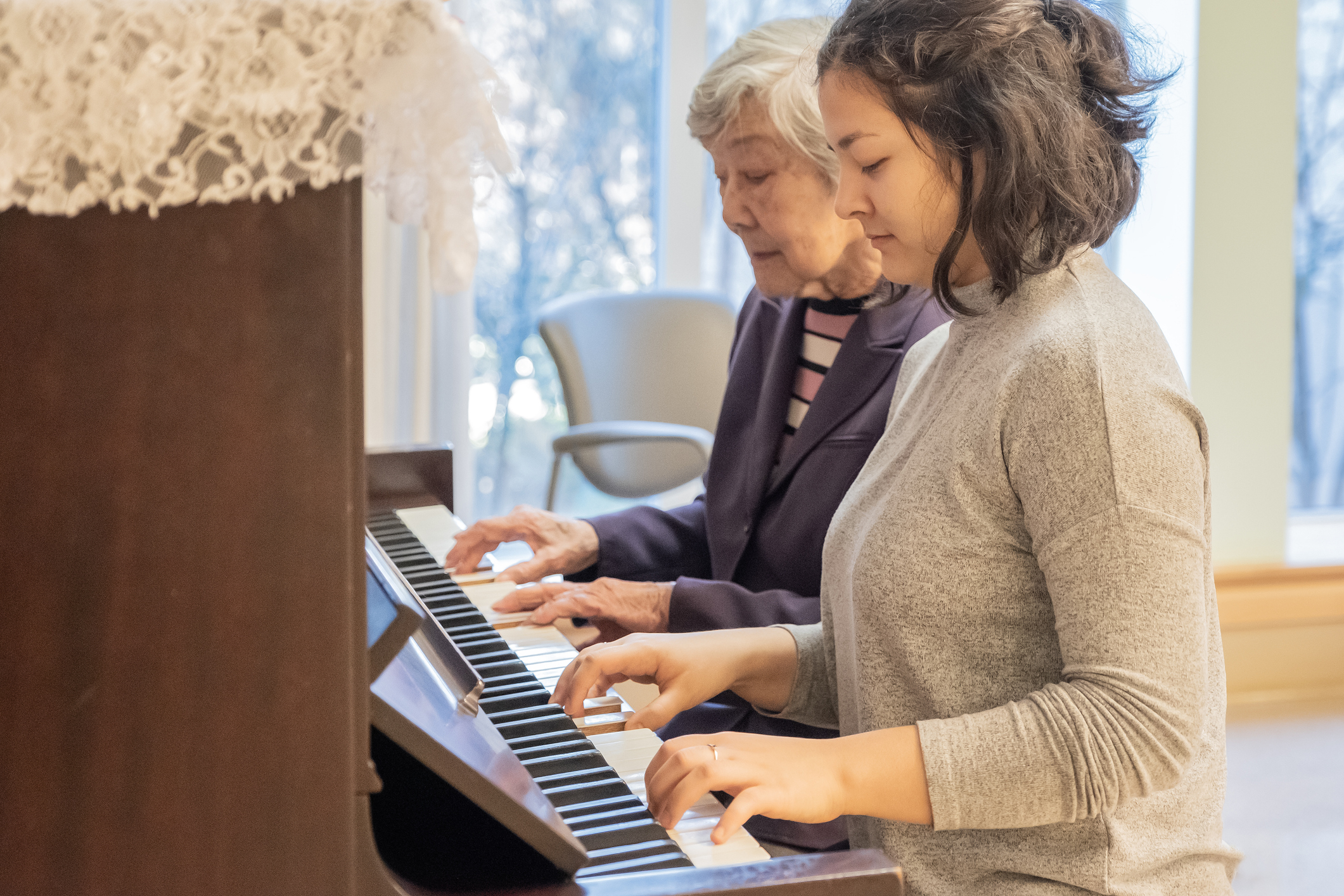How music therapy can treat cancer-related pain

Have you ever gotten so caught up in a song that everything else seemed to stand still while you listened? Or been instantly transported to another time and place from the first few notes of that specific song? Has your mood improved just from hearing your favorite song? It’s because our brains are wired for music. And music therapy can be a powerful analgesic. Music therapy is not simply clicking “play” on a playlist.
Comprehensive treatment
Music therapy uses live, patient-preferred music and evidence-based music interventions to address physical, cognitive, emotional, social, and spiritual needs of individuals of all ages and diagnoses. Our board-certified music therapists and interns here at UK HealthCare target symptoms like pain, anxiety, and nausea to aid patients with coping, relaxation, and satisfaction.
Proven results
Music therapy practice is supported by a large body of quantitative and qualitative research that continues to grow. Studies support the use of music therapy to alleviate perception of pain and nausea, particularly for individuals undergoing treatment for cancer. Music therapists can provide a number of interventions tailored specifically for each individual’s needs at any given time. One patient might benefit from a music-assisted relaxation exercise while another responds well listening to high-intensity live music designed to direct attention away from the pain source. Another patient’s nausea may be controlled through breathing techniques and by singing their favorite songs. A patient engrossed in playing an instrument might not register pain from the wound dressing change occurring at the same time.
Giving patients choices
Music therapy can lessen the negative impact of extended lengths of stay experienced by so many of our patients with cancer. Songwriting and song discussion can help patients and their families process the wide array of emotions that accompany a cancer diagnosis, symptoms, and treatment. Music therapists also provide patients the chance to make choices during sessions, giving them and their families a greater sense of autonomy and control in a situation where they have very little.
This article was written by Jennifer Jarred Peyton, MM, MT-BC, a board certified music therapist with UK HealthCare Integrative Medicine & Health.
To learn more about the UK HealthCare Music Therapy Program, visit our website, email musictherapy@uky.edu or call 859-323-4330. UK HealthCare providers can enter an order in EPIC for patients who would benefit from music therapy services.




